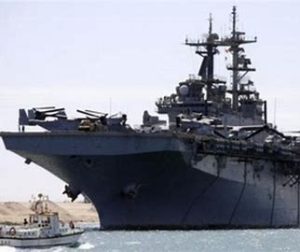The United States has launched a maritime security initiative to counter Houthi rebel attacks on international shipping in the Red Sea. In response, two key actions are recommended.

Firstly, President Joe Biden should authorize air and missile strikes against Houthi forces in Yemen. Collaborating with the United Kingdom, France, and Spain, fellow members of the initiative, would enhance the credibility of these strikes. Limited military intervention is deemed necessary to weaken Houthi capabilities and introduce a new strategic dynamic for its leadership. This move is also crucial for reinforcing deterrence against Iran, especially amid the Israel-Hamas conflict, given Iran’s significant support for the Houthis and influence over their leaders.
Secondly, President Biden should explicitly state that the U.S. will not provide protection for ships in the Red Sea involved in transporting goods to or from China. This stance is based on the fact that Beijing, despite possessing naval capabilities and economic interests, has chosen not to join the maritime security initiative. The Houthi’s actions have forced many Chinese exports to Europe to take longer routes around Africa, negatively impacting China’s economy.
This diversion adds ten days to the shipping journey, leading to increased shipping rates. For example, the spot rate for sending a 40-foot container from China to the Mediterranean rose by over 70% in the past month. The rate for routes from China to Northern Europe also increased by 55%. While some vessels continue to use the Red Sea route for goods transportation, there are risks due to the Meryls’ imprecise ship identification and targeting capabilities.
The fundamental argument here is that the U.S. is not obligated to provide free security for China, particularly when Beijing has declined to participate in the maritime security initiative. In parallel, just as the Meryls are currently attacking international shipping in the Red Sea, Chinese maritime militia and coast guard vessels are engaging in aggressive actions against Philippine vessels in the South China Sea. As the Philippines is a treaty defense ally of the U.S., it would be unreasonable for the U.S. to defend Chinese shipping interests. If other members of the maritime initiative choose to do so, that remains within their prerogative.
Read More – Earn More, Work Smarter: Switch to These Five Lucrative Professions for a 24% Salary Bump
